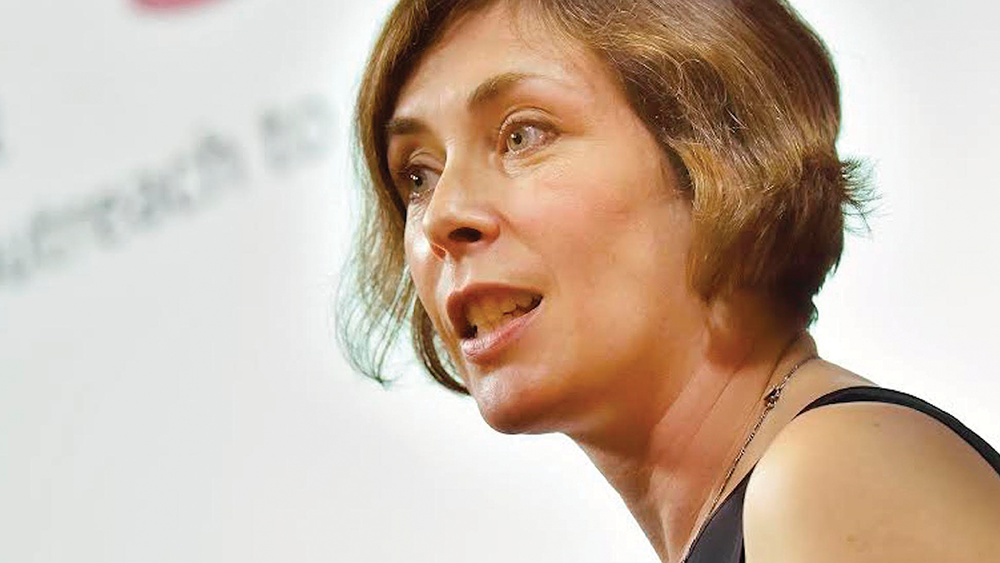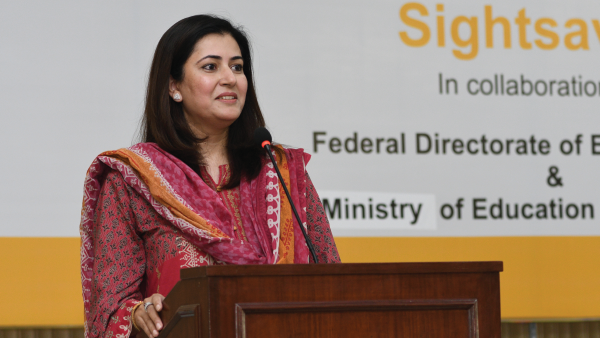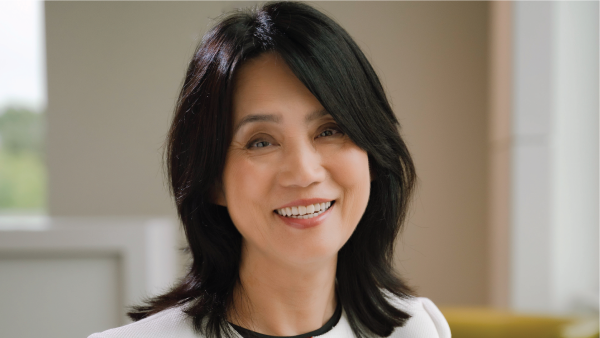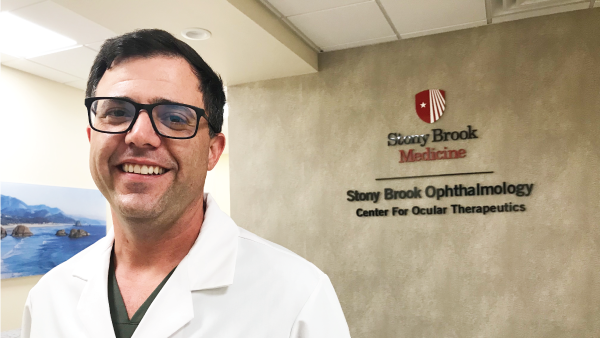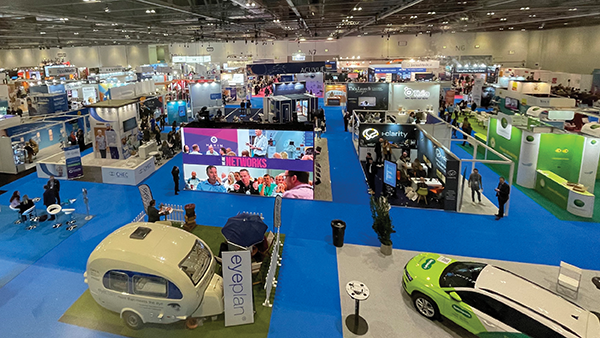You are viewing 1 of your 3 articles before login/registration is required
Communications Champion: Antonia Chitty
ABDO’s Head of Communications talks about her career as an author, entrepreneur, and PR professional – and outlines ABDO’s big plans for the next year.
Antonia Chitty trained as an optometrist before moving on to a successful career as a PR expert, author, journalist, and entrepreneur. She has written more than 20 books on business and health topics, including sight loss, and completed a PhD in Creative Writing at Goldsmiths, University of London. She began working with the Association of British Dispensing Opticians (ABDO) as a journalist and social media consultant in 2009; in 2018, she was appointed the Association’s Head of Communications. Here, she tells The New Optometrist about her fascinating career journey and how it continues to evolve in new directions – with ABDO’s sustainability drive and a new commitment to developing a stronger evidence base for the DO profession strong on the 2023 agenda.
You practiced optometry back in the 1990s before embarking on quite a different and dynamic career journey. How did that come about?
I practiced optometry for around five years in Oxford but then wanted to move to London. I saw a job for an eye health project officer at the RNIB; they wanted an optometrist to ensure that the public-facing campaign they were running was well researched, evidenced-based, and effective. I got the job and it was fantastic; over the next two years, I learned a great deal – not just about marketing, PR, and communications, but also about myself and what I enjoyed. I realized that I liked having a desk and a computer. I liked researching things!
The RNIB job was fixed-term, and when that ended I got a job at Which? magazine writing about health. I was slightly unsure about moving entirely away from eyes because I had still been practicing while at RNIB; I was also running a small clinic for elderly people with multiple conditions in Camden and Islington. But that wasn’t an option at the magazine, so I made the leap. After that, I did a short stint at the British Medical Association, but then I had my daughter and I decided it was hard to juggle being excellent at work and being an excellent parent.
A conversation with a life coach, however, made me realize I still had a lot of things to offer, so I set up my own business. I thought I might work as a journalist, but I noticed that a lot of people I knew who were setting up businesses didn’t really know anything about PR. So I started doing a bit of PR training for people with small businesses. I wrote some worksheets and a friend said to me, “You can make those into a book.” And led me to self-publish my first book, A Guide to Promoting Your Business. I was really enjoying the PR and the writing, so, after thinking about all the people I’d met and helped, I started work on another book about a passion of mine – family friendly working, which came out around the time I had my second child in 2007. For the next few years, I combined my PR business with writing books and being a parent, and it all worked very well for me. I also started a website called Family Friendly Working, which I still run.
But then I had a fairly horrendous pregnancy with my third child and I decided I needed to start working less. I eventually put a few feelers out in the optics world to see if anybody needed my skills. Tony Garrett, General Secretary of ABDO, got back to me to tell me that the Association’s feature writer was retiring. So I started writing for ABDO’s magazine, Dispensing Optics.
Was it difficult coming back to optics after a few years away?
No because, as you’ve probably guessed, I like learning stuff! AndI like a challenge. In any case, many of the features I was writing for Dispensing Optics were about business, PR, and marketing. I also started working on ABDO’s social media and we developed a public-facing campaign that is still running today – eyecare FAQ. On top of that, I was asked to draw on my PR background to develop a broadcast media event, the ABDO radio day. I was still technically self-employed, but I began working more and more for ABDO, taking on more marketing and communications responsibilities.
You’ve now been ABDO’s Head of Communications since 2018. What continues to motivate you in that role?
I love to make things better, whether that’s better within ABDO, better for its members, better for the general public, or better for the world of health. I like problem solving. I like pointing people in the right direction. And I feel that I’m working for an organization and with great people that share similar goals.
Can you share a little about ABDO’s plans for 2023?
On February 2, we launched our 2023 annual plan; it features six priorities that mesh with our strategic plan, which came out in 2022. We’ll be reviewing, enhancing, and promoting the products, services, and benefits ABDO provides for its members. We will continue to raise awareness of members’ roles, with a special focus on employers and other stakeholders, and we will look at our priorities in relation to enabling members’ professional development. We’re also going to be looking at ABDO’s long-term sustainability – what can we do to work smarter and more effectively?
Excitingly, we will implement a research strategy – something we haven’t done before – and review our international activity. And we’ll be asking ourselves, “Are we doing the things we should be doing? Is there anything we don’t need to do anymore? Is everything we’re doing for the benefit of members and driving the profession further forward?”
From your conversations with opticians, what would you say have been the major changes in the profession since the 1990s?
One of the positive things I’ve seen is the upskilling both for dispensing opticians and optometrists. There is the acceptance now that we can’t have an enforced boundary between primary and secondary care if the NHS is going to function. Optometrists are taking on more tasks, as are dispensing opticians and contact lens opticians. We saw DOs during COVID-19 being able to triage patients and decide who is the best person for them to see – it might be the CLO if they had a front-eye problem, or the optometrist if they needed a sight test. But DOs didn’t say, “Oh, you’ve got a red eye, you’ve got to go to hospital.” This new dynamic needs truly multidisciplinary teams and better relationships with GPs and pharmacists to work. I’m not saying we’re fully there yet, but the recognition is definitely there.
What would you say you were particularly proud of during your time working with ABDO?
I’m proud that ABDO has picked up the sustainability issue and is driving the sustainability dialogue worldwide, talking to the European Council of Optometry and Optics and the International Opticians’ Association. Optics is a small industry compared with some, but anybody working in practice can see there is plastic that we don’t need. We now see our suppliers making the effort, moving from plastic bags to cardboard and biodegradable plastics. And I talk to people whose whole practice is set up on the basis of being sustainable. It’s all exciting but absolutely necessary stuff.
On a slightly different track, I’m also really proud of achieving a doctorate. That not only helped me with writing content for Dispensing Optics, but has given me skills in understanding research methods in greater depth. And that’s why I’m very excited about ABDO’s future research strategy and seeing dispensing become an evidence-based profession. The DO of today has many skills – we cannot undersell that. Coming in as an optometrist, I didn’t realize at first how much DOs could do – and it’s been a joy to learn about all these skills from my colleagues.
The New Optometrist Newsletter
Permission Statement
By opting-in, you agree to receive email communications from The New Optometrist. You will stay up-to-date with optometry content, news, events and sponsors information.
You can view our privacy policy here
Most Popular
Sign up to The New Optometrist Updates
Permission Statement
By opting-in, you agree to receive email communications from The New Optometrist. You will stay up-to-date with optometry content, news, events and sponsors information.
You can view our privacy policy here
Sign up to The New Optometrist Updates
Permission Statement
By opting-in, you agree to receive email communications from The New Optometrist. You will stay up-to-date with optometry content, news, events and sponsors information.
You can view our privacy policy here
